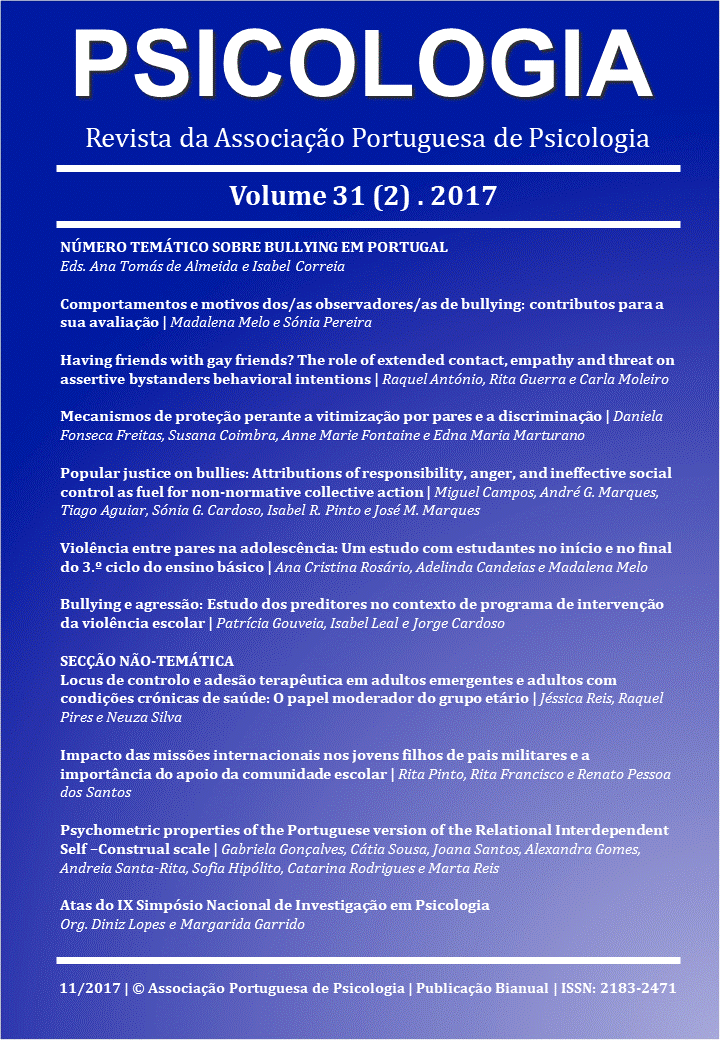Having friends with gay friends? The role of extended contact, empathy and threat on assertive bystanders behavioral intentions
DOI:
https://doi.org/10.17575/rpsicol.v31i2.1138Abstract
Peers are present in more than 80% of bullying episodes and research showed that bystanders have a very important role in stopping bullying episodes. However, little is known about the predictors of assertive interventions by bystanders. The current study explored if extended contact (i.e., having friends who have gay friends), is related to assertive behavioral intentions to help the victims of homophobic bullying, through increased empathy and decreased masculinity/femininity threat. An online survey was completed by 87 heterosexual adolescents (12 to 18 years old). Results revealed that, as expected, extended contact was associated with more assertive interventions, via increased affective empathy and decreased masculinity/femininity threat. These findings replicated and extended previous studies by illustrating the underlying mechanisms through which extended contact positively affects bystanders’ interventions.Downloads
Download data is not yet available.
Downloads
Published
2017-11-21
How to Cite
António, R., Guerra, R., & Moleiro, C. (2017). Having friends with gay friends? The role of extended contact, empathy and threat on assertive bystanders behavioral intentions. PSICOLOGIA, 31(2), 15–24. https://doi.org/10.17575/rpsicol.v31i2.1138
Issue
Section
Thematic issue


